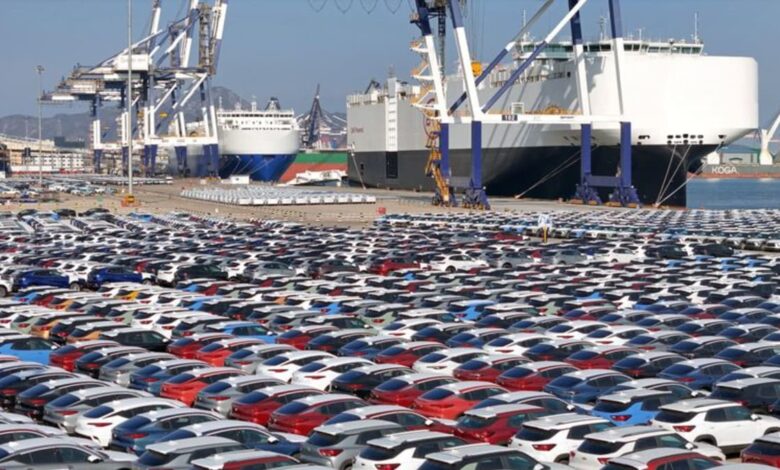Commentary: Electric cars pile up at European ports as Chinese firms struggle to find buyers

LACK OF BUYER FAITH
China’s automotive expansion programme draws parallels with the moves made by Japan in the 1960s and 70s. At that time, the product coming from Japan was commendable but lacked the finesse, design and longevity of their Western counterparts. Japanese cars were thought of as tinny, underpowered and susceptible to rusting, as well as looking very generic compared to stylish European designs.
Memories of Japan’s involvement in World War II were also fresh in (particularly American) buyer’s minds, who were slow to forgive a nation that launched the Pearl Harbour attacks. However, by constantly focusing on a reliable, relatively cheap and increasingly stylish product, Japan slowly turned this around to become the automotive powerhouse of the 1990s and 2000s.
China is viewed with suspicion by many Westerners, and its carmakers are similarly hampered by their recent legacy of producing both endorsed and illegal clones of European cars. But with the lessons of the Japanese to learn from, Chinese cars are rapidly advancing to match and exceed existing alternatives.
Strategic purchases of brands like Volvo, Lotus and MG have also given China existing brands that are respected and, more importantly, have some of the best engineering knowledge in the world.
Yet, even after buying up Western brands, Chinese automakers have proven unable to buy loyalty from existing customers of brands like BMW, Porsche, Ferrari and Ford. For these buyers, the history of the brand in terms of known reliability and even things like motor sport success is something that Chinese makers, like the Japanese, will have to build up over time.
It was Ford dealers who, in the 1960s, coined the phrase: “Win on Sunday, Sell on Monday”. The phrase is as an adage to attest the fact that if buyers see a car winning a race, they’ll be motivated to go out and buy one.
Existing manufacturers also have a legacy of reliability that buyers have experienced for themselves, giving a huge brand loyalty benefit. Add to this a lack of an established dealer network outside of China and you see how Chinese makers struggle against the established competition.


 Play with Welcome Bonus Up to 300%
Play with Welcome Bonus Up to 300%